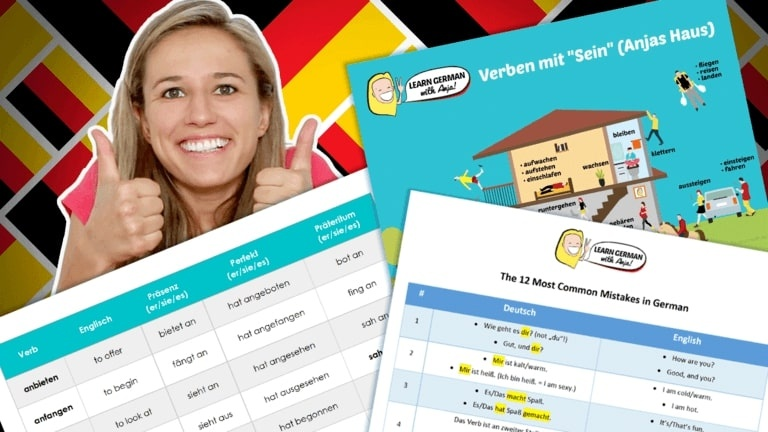Absorb German naturally
... with real-life dialogues!
Hi, I am Anja, a native German speaker. My Academy is for you if you want to learn German the natural way, without wasting months trying to memorize grammar rules and word lists.

My Academy Courses

About Anja
Hi, I’m Anja Winter, a native of Germany with a passion for languages and fun!
I’ve spent the last 8 years developing the best ways to teach and learn German. By taking small steps day after day, I believe we can achieve anything if we put our minds to it.
Read more
Watch our Trailer:

800k+
YouTube Subscribers

5k+
Students in the Academy

7+
Years of Experience
Subscribe to my Newsletter & Get your FREE German Essential Kit including:
✔ The 12 most common German mistakes and how to avoid them (+ with sample sentences)
✔ A list of the 30 most important dative verbs you must know!
✔ A list of the most important German irregular verbs and an easy explanation of the past tenses
✔ The picture of "Anja's house" with all the verbs that use "sein" in the perfect tense (high quality to print!)
✔ When you sign up, you will become part of our worldwide community of German learners and receive the best tips and tricks for learning German!






